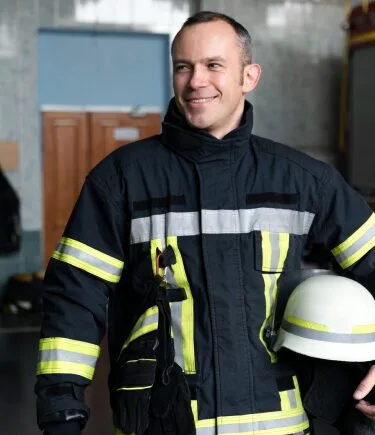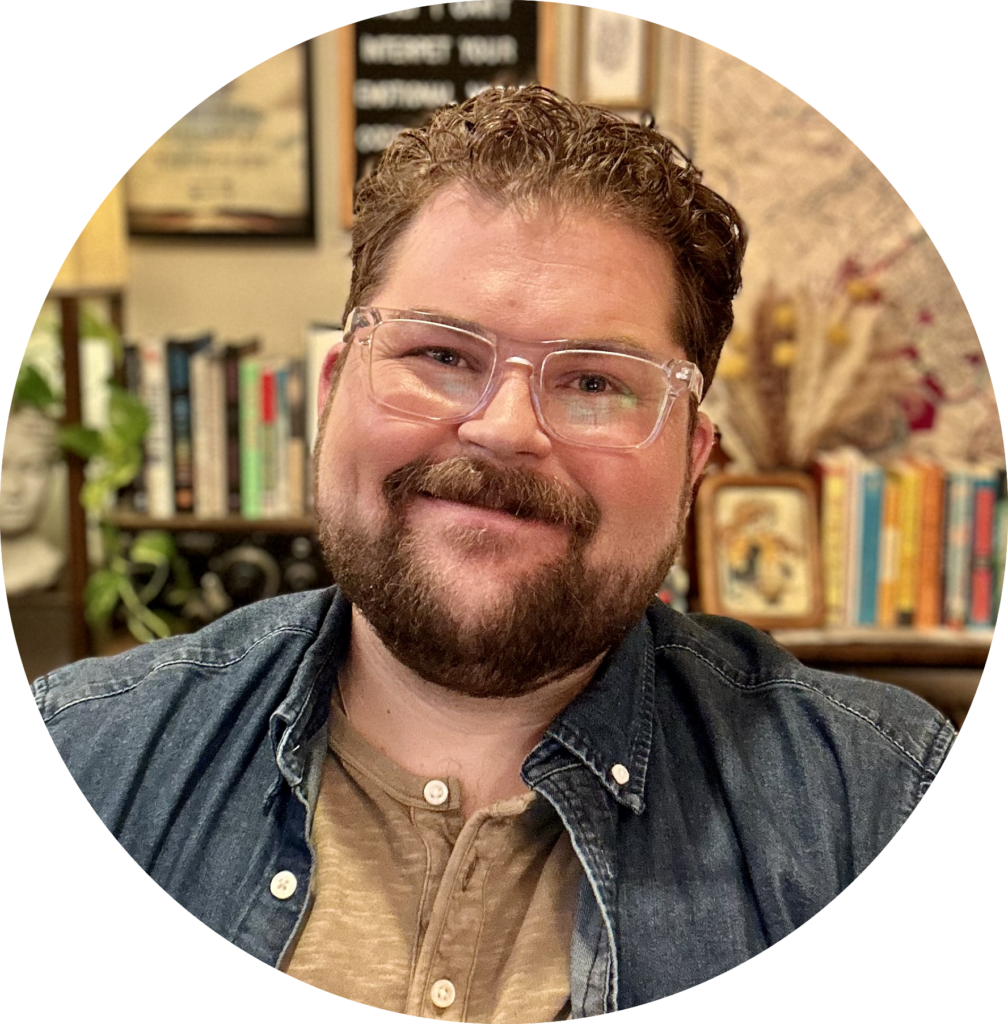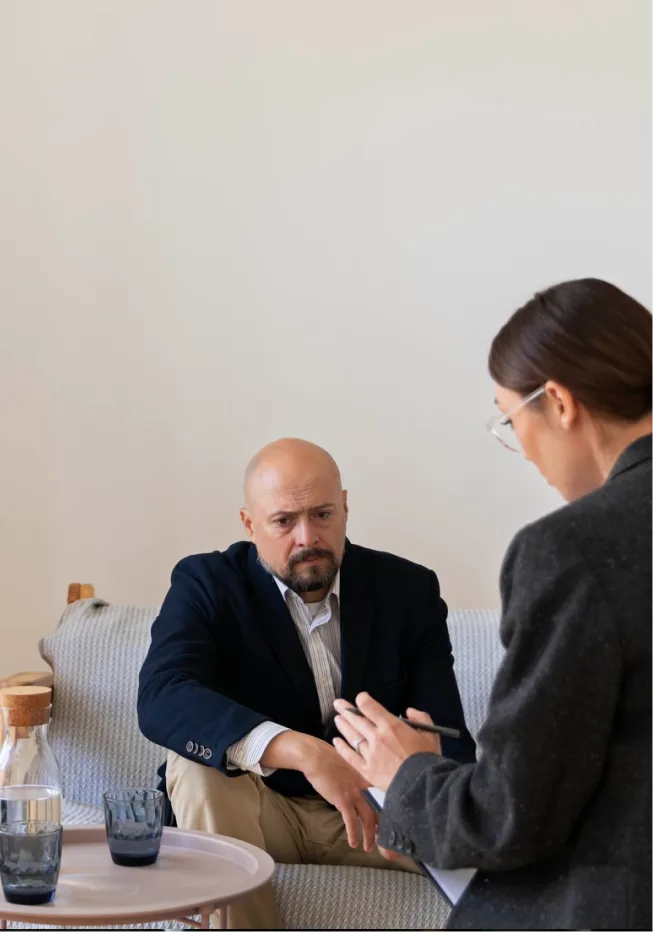PTSD & Trauma Therapy in Denver



Signs That You Should Seek PTSD Therapy
- Reliving or Re-experiencing Trauma: Intrusive memories, flashbacks, or nightmares can disturb daily life. You may feel intense emotional or physical distress when reminded of the event.
- Negative Changes in Cognition and Mood: Emotional numbness, difficulty feeling positive emotions, and self-blame are common. You may also hold negative beliefs about yourself or the world.
- Avoidance: Steering clear of places, activities, or people linked to the trauma, leading to feelings of isolation. You might also avoid thinking or talking about the event entirely.
- Hyperarousal: Feeling constantly on edge, quick to anger, being easily startled, having difficulty sleeping, or experiencing irritability and anger.
- Unhealthy Coping Mechanisms: Turning to substance abuse, binge drinking, or other destructive behaviors to escape trauma-related feelings.
- Complex PTSD Symptoms: Struggling with emotional regulation, difficulties in relationships, and low self-esteem or confidence. You may also feel disconnected from your identity or unsure of who you are.
You don’t have to face trauma alone. Reach out to our therapists for personalized support.

What to Expect at Your First PTSD & Trauma Therapy Session
Starting trauma therapy at Denver Men’s Therapy is a brave step toward reclaiming control over your life. Our trauma therapists prioritize creating a safe, compassionate space where you can openly explore your past, present, and future challenges.
During your first session of trauma therapy, we’ll take time to understand your history, identify your needs, and establish a sense of trust. Together, we’ll create a personalized treatment plan tailored to you.
As therapy for PTSD progresses, we’ll help you develop coping skills to manage distress and build emotional resilience.
Reprocessing traumatic experiences will be done at a pace that feels right for you, ensuring your safety throughout. Our goal is to empower you with the tools needed to move forward, providing ongoing support as you heal.
Meet Our Experienced Trauma Therapists in Denver
Connect with our compassionate trauma therapists in Denver, who are committed to guiding you through your healing journey.

LCSW || EMDR Certified
I help male survivors of childhood abuse build healthy, connected and meaningful lives.

LCSW || EMDR Certified
I help men who feel overwhelmed by their emotions feel confident in managing them, bridge communication with their partner, and feel more connected.

LCSW || EMDR Trained
I help men overcome anxiety, depression, intrusive memories, and feelings of hopelessness stemming from past wounds, to feel understood, safe, empowered, and in control of their lives.

LMFT || EMDR Trained
I work with LGBTQ+ people struggling with issues relating to sex, spirituality, and relationships – helping them to navigate a journey of healing and growth toward wholeness.

LCSW, LAC || EMDR Trained
I specialize in supporting young and adult males transitioning from treatment centers, empowering them to build a strong foundation for recovery and envision the fulfilling life they desire.
Our Process
Move beyond PTSD/Trauma
Reach Out To Us
Contact us through our online form or by phone, and we'll match you with the right therapist based on your needs and goals.
Meet with a Licensed Therapist
In your first session, meet with our Denver Trauma Therapist to explore your unique situation, at your pace and create a tailored plan for your personal growth and healing.
Achieve Your Goals and Thrive
With ongoing therapy and support, you'll work through challenges, build coping strategies, and develop the strength to live a more fulfilled life
How Can Counseling Help with PTSD and Trauma?
- Counseling can relieve distressing symptoms like nightmares and flashbacks, offering peace of mind.
- Therapy promotes deeper emotional processing, helping you understand your trauma while reducing anxiety and depression.
- Counseling techniques assist in restructuring traumatic memories, softening their emotional impact, and minimizing daily disruption.
- Improved emotional regulation through counseling reduces symptoms of hypervigilance and mood swings, leading to a more stable emotional state.
- Psychedelic-assisted group therapy provides a unique environment for deep emotional exploration, especially beneficial for those who haven’t found lasting relief through other methods.


Innovative Therapeutic Approaches for Treating PTSD at Denver Men's Therapy
At Denver Men’s Therapy, we go beyond traditional talk therapy, offering specialized PTSD treatment tailored to the unique needs of each individual. Our approach is grounded in evidence-based therapies designed not just to manage symptoms but to deeply address the root causes of trauma.
One of the key therapies we use is Eye Movement Desensitization and Reprocessing (EMDR), which helps reprocess painful memories and reduce their emotional impact.
Another approach includes Psychedelic-Assisted therapy or ketamine therapy, known for its rapid relief and ability to help clients gain deeper insights into their trauma.
Our commitment is to support your long-term healing and recovery. Whether you’re seeking trauma therapy in Denver or exploring options across Colorado, our team of experienced therapists is dedicated to providing compassionate and effective care.
What is Complex PTSD (C-PTSD) and How is it Different from Other Forms of PTSD?
Complex Post-Traumatic Stress Disorder (C-PTSD) develops from long-term, repeated trauma, unlike traditional PTSD, which often stems from a single event. Individuals exposed to prolonged abuse, such as childhood neglect or domestic violence, are more likely to experience Complex PTSD.
Examples of long-term trauma include:
- Living in poverty
- Being a victim of human trafficking
- Enduring life in a war zone
- Experiencing torture
- Suffering ongoing physical, emotional, or sexual abuse
While C-PTSD shares many symptoms with PTSD—such as anxiety, hypervigilance, and recurring nightmares—it also encompasses unique challenges like maintaining relationships, persistent shame and guilt, and low self-esteem. The prolonged nature of C-PTSD often leads to struggles in distinguishing between healthy and unhealthy relationships.
Though both forms of PTSD result from distressing events, C-PTSD is defined by the enduring and cumulative nature of trauma. The approaches for PTSD treatment and Complex PTSD therapy may vary based on the complexity and duration of the trauma experienced.


Understanding Different Types of Trauma
When you endure prolonged or repeated trauma, the challenges run deeper, impacting emotional regulation, relationships, and self-esteem. However, understanding the nature of your trauma helps to determine the specialized trauma therapy for recovery.
Here are some common types of trauma:
- Childhood Abuse: Physical, emotional, or sexual abuse during formative years can have lifelong effects.
- Interpersonal Trauma: Toxic relationships that cause emotional pain and lasting damage.
- Combat Trauma: Military experiences and exposure to violence often leave deep emotional scars.
- Occupational Trauma: Stress from high-pressure jobs, like first responders or healthcare workers, can lead to trauma.
- Witnessing Tragedy: Observing violent events or accidents can trigger lasting traumatic responses.
- Surviving Danger: Near-death experiences, assaults, or accidents can leave a mental toll.
Understanding Different Types of PTSD
- Normal Stress Response: A temporary reaction that typically resolves with time and support.
- Acute Stress Disorder: Occurs shortly after a traumatic event and can develop into PTSD if left untreated.
- Uncomplicated PTSD: Arises from a single traumatic event, such as an accident or assault.
- Complex PTSD: Results from prolonged or repeated trauma, often complicating the healing process.
- Comorbid PTSD: Coexists with other mental health issues, like anxiety or depression, making recovery more challenging.

We Can Help With All Your Concerns
- Complex PTSD: Addressing difficulties in relationships, emotional dysregulation, dissociation, and negative self-perception with complex PTSD therapy.
- Depression and Anxiety: Offering relief from persistent feelings of sadness, worry, and hopelessness.
- Panic Attacks: Helping individuals manage sudden, intense episodes of fear and physical discomfort.
- Sleep Disturbances: Treating issues like insomnia and nightmares that disrupt daily life.
- Substance Abuse: Supporting those struggling with alcohol or drug use as a coping mechanism.


Risk Factors for Developing PTSD
- Delaying Treatment for Early Symptoms: Ignoring the initial signs of trauma-related distress can lead to worsening symptoms and a higher risk of developing PTSD.
- Exposure to Traumatic Events: Experiencing or witnessing life-threatening situations, injuries, or losing a loved one.
- Childhood Trauma: Early life experiences of abuse or neglect increase vulnerability.
- Emotional Responses: Intense feelings of horror, helplessness, or extreme fear during the event.
- Lack of Social Support: Limited support from family, friends, or community after the trauma.
- History of Mental Health Issues: Pre-existing mental illness or substance abuse can heighten risk.
- High-Stress Occupations: First responders and military personnel are at a higher risk due to frequent exposure to traumatic events.
Your Questions About PTSD Treatment, Answered
1. What is unique about working with Denver Men's Therapy for PTSD treatment?
Therapy provides personalized, trauma-focused care specifically for men. Our therapists understand the unique challenges men face when addressing PTSD, offering empathetic support and evidence-based treatments like EMDR to foster healing.
2. How can EMDR therapy help with PTSD?
EMDR therapy uses bilateral stimulation (such as eye movements) to help reprocess and desensitize traumatic memories. This treatment can reduce the emotional intensity of these memories, leading to a significant decrease in PTSD symptoms and promoting long-term healing.
3. Does talking about the trauma make it worse?
While it may feel overwhelming initially, talking about trauma in a controlled, therapeutic environment can reduce its emotional intensity over time. Our skilled therapists ensure the process is paced to promote healing without overwhelming the client.
4. What is the difference between experiencing trauma and PTSD?
Experiencing trauma involves encountering distressing events, while PTSD is a mental health condition that develops when these traumatic experiences lead to persistent symptoms such as flashbacks, severe anxiety, and emotional numbness. Effective trauma therapy in Denver can address these issues and support recovery.
5. How is CPTSD different from PTSD?
Complex PTSD (CPTSD) often results from prolonged or repeated trauma, leading to additional challenges such as emotional regulation difficulties, strained relationships, and lowered self-esteem. Trauma treatment in Denver, including complex PTSD therapy, can help address these unique challenges.
6. How long does trauma therapy take?
The length of trauma therapy varies based on individual needs and factors such as severity, and age when the trauma took place.
7. Will I have PTSD symptoms for the rest of my life?
With appropriate PTSD treatment in Denver, many individuals can experience significant relief from symptoms and achieve a better quality of life. Ongoing support from a trauma therapist in Denver can help manage and reduce symptoms effectively.
8. How do you know if you or a loved one is ready to begin trauma therapy?
Recognizing persistent distress, feeling overwhelmed by past events, and a willingness to work on healing are key indicators that someone is ready for trauma therapy. A consultation with a PTSD therapist in Denver can help determine readiness and start a tailored treatment plan.
Take the First Step Towards Healing
Live fully in the present, free from the weight of your past. If you or a loved one is ready to speak with our counselor, we’re here for you.
